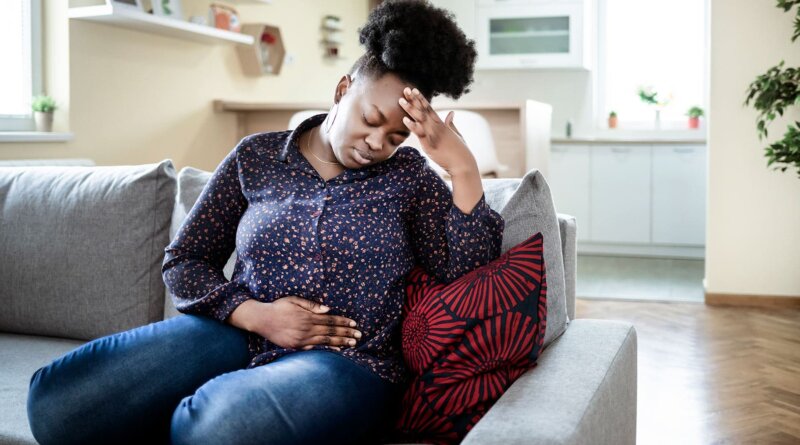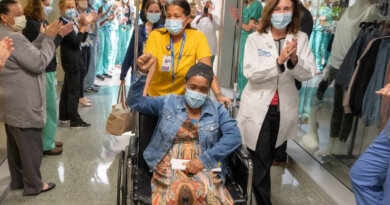More Pregnant People Are Overdosing, and Stigma Plays a Role
March 30, 2023 – For Hendree Jones, PhD, executive director of an addiction clinic in Chapel Hill, NC, too many of her patients wait to seek addiction treatment because they’re afraid of facing backlash. They fear having their children taken away or going to jail and leaving them behind in an unsafe environment if they test positive for drugs.
Jones, who runs UNC Horizons, a drug treatment facility for pregnant women and their children, said she’s seen a number of cases where these fears have been realized. Most recently, one of her patients made it through pregnancy, but when her newborn tested positive for drugs, child welfare stepped in. The woman desperately wanted help with her addiction, but there were concerns that she might not be able to take care of her baby.
“We were able to advocate for her so she could bring her child along to the treatment facility, but all too often these families end up separated,” Jones said.
The introduction of fentanyl into the drug supply has been driving an increase in overdose deaths among the entire population, and pregnant people show these same patterns of addiction. A recent article published in JAMA found that among pregnant and postpartum people, drug overdose deaths increased by 81% from 2017 to 2020. Recent reports have also shown that maternal mortality is on the rise in the United States and overdose rates are partially driving the increase.
Pregnant people also face additional barriers to care. For starters, penalizing them for drug use has become more common in recent years as a result of the opioid epidemic. States like California and nearly a dozen others now have laws on the books that classify drug use as child abuse and can result in many parents losing custody of their children, according to an article in JAMA Pediatrics.
They may also be turned away from emergency rooms or aren’t believed when they say that they’re in pain from withdrawal, Jones said. According to an October 2022 report from the White House Office of National Drug Control Policy, pregnant people are 17% less likely to be accepted into a treatment facility than the general public and when they are accepted, they’re often met with disdain.
Many women are treated so badly within health care settings that they go in once for treatment and never go back, Jones said. While we’re seeing a greater understanding around addiction as a medical condition within many populations, that same understanding has not been extended to pregnant people. “It takes a lot of guts to walk into a treatment facility and say you need help and when there isn’t a compassionate response, these women get scared and leave,” she said.
Only around 19% of treatment facilities in the U.S. treat pregnant people, and in recent years that number has been on the decline, according to a report from the American Counseling Association. The decline is due to poor funding and the pandemic, when social distancing forced many facilities to reduce residential numbers. Staffing these treatment centers with properly trained counselors has also become more difficult because people are dropping out of the profession, not entering it. All of this has resulted in a lack of care for those who need it the most, said Emilie Bruzelius, an epidemiologist at Columbia University in New York who studies how the opioid crisis has impacted child welfare.
“Nobody starts using opioids when they’re pregnant. It’s people who have opioid use disorders and then may or may not have access to treatment and the social support that they need to get through it,” said Bruzelius.
Additionally, for many people who are able to stay drug-free during pregnancy, the postpartum period can become even more dangerous. Bruzelius’s research shows that the greatest number of opioid deaths happen after the birth of a child. A February 2021 study published in the Journal of Women’s Health found that the risk of overdose was highest 7 to 12 months after pregnancy.
“Pregnancy can be a motivating time for women to seek help, but as time passes the risk of relapse is higher in the postpartum period, and if women have managed to cease drug use during pregnancy, their risk of overdose gets even higher because they don’t have the same tolerance that they had before,” said Bruzelius.
The postpartum period is already at a critical point because of the risk of postpartum depression and an overall lack of postpartum health care. While pregnant people might see their obstetrician weekly, most only have one visit with their doctor after giving birth. And for the most at-risk population, this just isn’t sufficient, Bruzelius said. “There are so many stressors that come with a new baby, and stress is not conducive to drug use cessation.”
Still, when people are able to get the help they need, research has shown that it works. Patients who are treated with methadone and buprenorphine (two medications widely used for the treatment of heroin dependence) are much less likely to die, according to a report from the American College of Obstetricians and Gynecologists.
“There is clear-cut evidence showing that these medications help women have better outcomes, and there’s no evidence to show that they negatively impact the development of the fetus,” said Nora D. Volkow, MD, director of the National Institute on Drug Abuse.
In some cases, when pregnant people use these medications, their babies may be born with neonatal abstinence syndrome (NAS), caused by withdrawal from drugs they’re exposed to in the womb. This outcome is more pronounced with the use of methadone over buprenorphine. Volkaw said one of the recommendations for treatment is to breastfeed because if the mother is taking these medications, breastfeeding can help to alleviate some of the withdrawal symptoms in the baby.
While there aren’t enough facilities available to pregnant people to meet the current need, there are examples of treatment centers that are doing it right. UNC Horizons, a state-of-the-art facility, for example, not only helps pregnant people with addiction but also treats the underlying trauma that causes them to relapse.
Other treatment facilities, like Hope Clinic at Massachusetts General Hospital in Boston, provide addiction and psychiatric care throughout pregnancy and early postpartum when people are most vulnerable to dying.
According to Volkaw, we can’t expect pregnant people to get help if their basic needs aren’t met. They need to be able to trust that those in the health care system have their and their children’s welfare in mind.
Rather than treating these people as criminals, we need to understand that this is a medical condition and without treatment many women will die, Volkaw said.
At a most basic level, Volkaw said, these people need to be able to bring their children with them to treatment. In some cases, they may need transportation, financial help finding a safe place to live, and proper nutrition.
“These are elemental needs and if they aren’t met, it becomes very hard for women to stay in treatment whether or not they’re pregnant,” she said.



